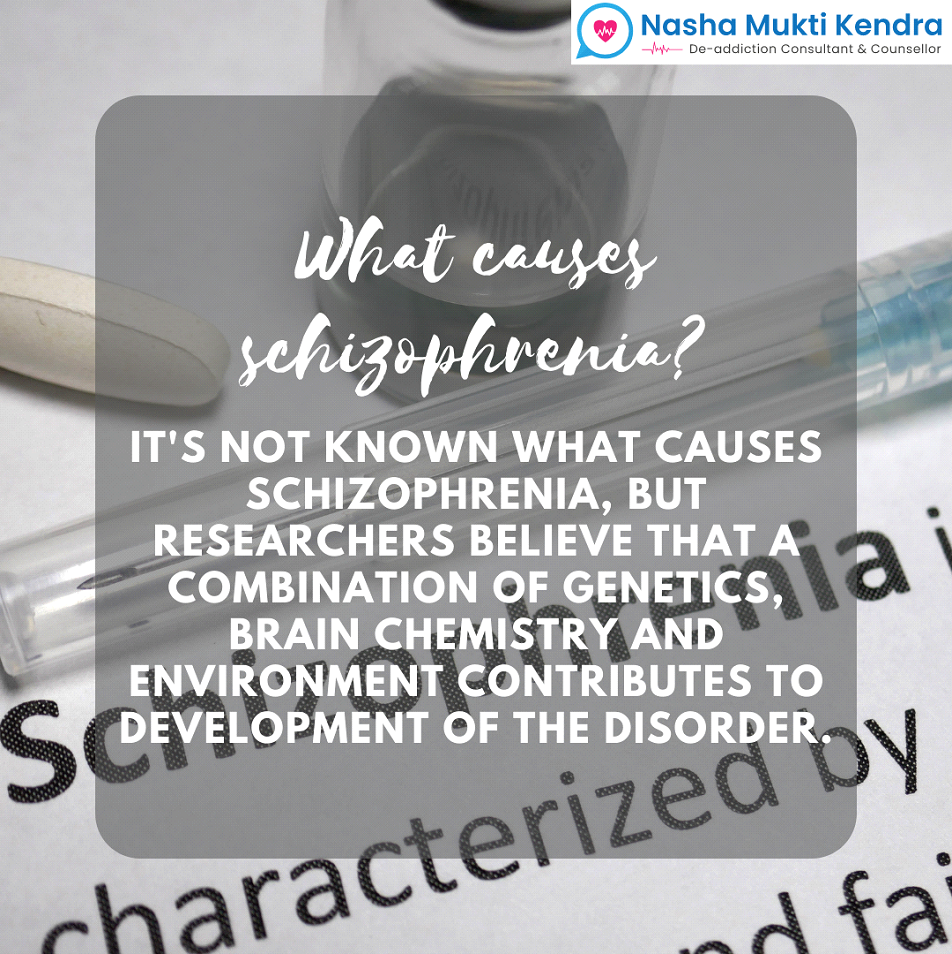Schizophrenia is a chronic brain disorder that interferes with a person’s ability to think clearly, manage emotions, make decisions, and relate to others. It usually emerges in late adolescence or early adulthood and can persist throughout a person’s life. It’s important to note that schizophrenia is not synonymous with multiple personalities; rather, it involves disruptions in thought processes, perceptions, and emotional responsiveness.
Symptoms of Schizophrenia
The symptoms of schizophrenia can be categorized into three main groups: positive, negative, and cognitive symptoms.
- Positive Symptoms: These are characterized by an excess or distortion of normal functioning. Hallucinations, where individuals perceive things that are not present, and delusions, which are false beliefs, are common positive symptoms. Delusions often revolve around themes of persecution, grandiosity, or conspiracy.
- Negative Symptoms: These refer to a reduction or absence of normal functioning. Negative symptoms can include reduced emotional expression, diminished motivation, social withdrawal, and difficulty experiencing pleasure.
- Cognitive Symptoms: Schizophrenia can also impact cognitive abilities. Individuals may struggle with attention, memory, and problem-solving skills. This can lead to difficulties in school, work, and daily tasks.
Effects of Schizophrenia
The effects of schizophrenia are far-reaching and can impact various aspects of an individual’s life. Relationships can suffer due to communication difficulties and social withdrawal. Occupational functioning may decline as a result of cognitive impairments. Additionally, self-care and personal hygiene can be neglected due to the negative symptoms, leading to a decline in physical health. The stigma associated with mental illness can further exacerbate these effects, making it challenging for individuals to seek help and support.
Schizophrenia in Teenagers
While schizophrenia typically manifests in early adulthood, it can also develop during adolescence. Identifying schizophrenia in teenagers can be particularly challenging, as certain behavioral changes are often attributed to normal adolescent development. However, persistent and severe symptoms such as social isolation, declining academic performance, extreme mood swings, and disorganized thoughts should raise concerns. Parents, teachers, and caregivers should remain vigilant and seek professional guidance if such symptoms are observed.
When to See a Doctor?
Recognizing the signs of schizophrenia and seeking timely medical assistance is crucial for effective treatment. If an individual experiences a combination of symptoms, such as hallucinations, delusions, disorganized speech, and impaired functioning, a mental health professional should be consulted. Early intervention can lead to better outcomes and improved quality of life. It’s important to note that self-diagnosis and self-medication should be avoided, as these can exacerbate the condition.
Suicidal Thoughts and Behavior
One of the most concerning aspects of schizophrenia is the increased risk of suicidal thoughts and behaviors. The emotional distress caused by the symptoms, coupled with the stigma and social isolation, can push individuals towards a heightened risk of suicide. Friends, family, and caregivers should be aware of warning signs, including talking about suicide, expressing hopelessness, and giving away belongings. If such signs are observed, immediate professional help should be sought.
Treatment and Support
Schizophrenia is a treatable disorder, and a combination of therapies is often recommended for managing its symptoms. Antipsychotic medications can help alleviate hallucinations, delusions, and other positive symptoms. Psychosocial interventions, such as cognitive-behavioral therapy and social skills training, can aid in addressing negative symptoms and improving functioning. A strong support system, including family, friends, and support groups, plays a vital role in the recovery process.
Choosing Nasha Mukti Kendra for Schizophrenia Treatment: A Path to Healing and Hope
Seeking the right treatment for schizophrenia is paramount to ensuring a better quality of life for individuals and their families. Nasha Mukti Kendra stands out as a beacon of hope and healing, offering specialized care and treatment for schizophrenia that goes beyond conventional approaches.
At Nasha Mukti Kendra, we take a unique approach to treating schizophrenia through Love & Care Therapy, also known as American Based Therapy. This compassionate and innovative approach is rooted in the belief that emotional support and understanding play a pivotal role in the recovery process. Our team of highly skilled clinical psychologists are not just professionals, but also individuals who genuinely care about the well-being of our patients. With deep expertise in treating schizophrenia, our psychologists provide personalized care that nurtures emotional growth and empowers patients to manage their symptoms effectively.
Understanding that each individual’s journey with schizophrenia is unique, Nasha Mukti Kendra offers personalized treatment plans for every patient, regardless of age. We recognize that the needs and challenges faced by children, teenagers, and adults vary significantly. Our treatment plans are tailored to address these specific needs, ensuring that each patient receives the most suitable interventions and therapies for their condition.
Nasha Mukti Kendra embraces a holistic approach to healing that considers not only the symptoms of schizophrenia but also the individual’s overall well-being. Our comprehensive treatment model integrates a range of therapeutic modalities, including medication management, psychotherapy, family counseling, and experiential therapies. By addressing the emotional, psychological, and physical aspects of the disorder, we aim to provide a well-rounded and effective treatment experience.
At Nasha Mukti Kendra, our commitment to our patients doesn’t end when their treatment does. We offer comprehensive aftercare programs and continued support to ensure a smooth transition back into daily life. We equip our patients with coping skills, relapse prevention strategies, and ongoing therapy options, helping them maintain their progress and navigate the challenges that may arise. Contact us at any time!
